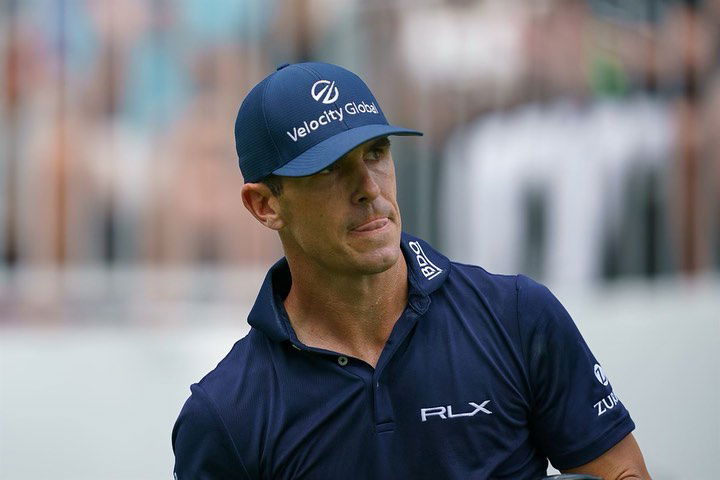
Imago
Image Courtesy: Billy Horschel, Instagram

Imago
Image Courtesy: Billy Horschel, Instagram
Billy Horschel believes the Ryder Cup loss for the USA team was more of a systemic issue than a technical one. With structural inefficiencies and management gaps, the American team feels far behind the European roster. No wonder, over the decades, Europe has maintained a far dominant hold on the greens. Addressing this, Horschel couldn’t resist criticizing the PGA of America.
Watch What’s Trending Now!
The 38-year-old recently joined Golf Today, where Damon Hack posed whether he believed that Europe always had an upper hand over America. These words couldn’t ring truer for Horschel, who admitted, “Yeah, it is.” Why? Well, the American golfer pointed out the consistency in management on the European side.
“Understanding that the European tour runs the Ryder Cup. So they see these people, they know the backroom staff, they can have conversations when they’re over there playing about the Ryder Cup, even if it’s a couple of years in advance, about hotels or anything that comes across their mind about how to make things better. They can talk to the people they have a relationship with regularly. And in my opinion, we don’t have that with PGA America,” Horschel explained.
ADVERTISEMENT
“I think we need to take more ownership of our team.”
Billy Horschel shares his thoughts on the U.S. Ryder Cup loss. @damonhackGC @eamonlynch pic.twitter.com/eINe0lxsms
— Golf Today (@GCGolfToday) October 22, 2025
The DP World Tour (formerly the European Tour) oversees every aspect of Team Europe’s Ryder Cup operations — from captain selection to logistics and sponsorships — fostering cohesion among players who regularly compete together. In contrast, Team USA’s structure is divided: the PGA of America handles Ryder Cup logistics, while the PGA Tour manages players’ schedules. This separation limits communication and continuity. Analysts like Paul McGinley and Brandel Chamblee have long pointed to this divide as a key reason behind the Americans’ struggle to build lasting team unity and strategic consistency.
Since 1985, Team Europe has dominated the Ryder Cup, winning 12 of the last 20 editions — in 1985, 1987, 1989 (tie), 1995, 1997, 2002, 2004, 2006, 2010, 2012, 2018, and 2023. Team USA has managed just six wins: 1991, 1993, 1999, 2008, 2016, and 2021. Europe has lost only twice on home soil during this period, highlighting its remarkable consistency and cohesion.
ADVERTISEMENT
Leadership and chemistry have been central to that success. Paul Azinger’s 2008 “pods system” boosted U.S. team unity, while Luke Donald’s 2023 approach emphasized trust, data-driven pairings, and strong relationships. Luke Donald has often credited the DP World Tour’s culture for fostering unity and familiarity among European players. He emphasized that years of competing together on the same circuit naturally build the trust and teamwork that define Europe’s Ryder Cup success.
By contrast, a coherent management culture remains elusive for the American team. With multiple organizations vying for influence, the Ryder Cup’s significance often feels diluted. While the PGA of America runs the event, most U.S. golfers compete on the PGA Tour, limiting interaction between players and officials. Addressing this gap, Billy Horschel argued:
ADVERTISEMENT
“I believe that it’s time that the PGA Tour or people that we believe should take over Team USA… We need to take more ownership of our team and have people who work on that Ryder Cup year-round.”
Horschel’s critique is less about blame and more about accountability. He believes that even minor structural changes — particularly greater involvement from the PGA Tour — could drastically improve Team USA’s preparation and results.
Team Europe’s 2023 Marco Simone victory perfectly illustrates this difference. Two years before hosting the Ryder Cup, European players gained early exposure to the course by competing in the Italian Open following Marco Simone’s 2021 reconstruction. While the U.S. team typically begins preparation only weeks in advance, Europe’s long-term planning gave its players a decisive edge.
ADVERTISEMENT
Contrary to the European Team, as Billy Horschel noted, the USA has far more stories of internal conflict, exposing cracks in the management.
Top Stories
Scottie Scheffler Injures Fan in the Head at American Express as Painful Moment Is Caught on Camera
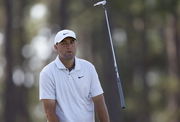
‘Hideous’: Jason Day Sparks Outrage With Outfit Choice at PGA Tour Season Debut
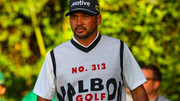
Prayers Pour in for PGA Tour Champions Star as Cancer Diagnosis Comes to Light
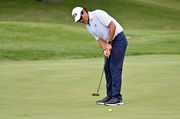
Gary Player Pays 11-Word Tribute to Jack Nicklaus at Legend’s 86th Birthday: ‘Greatest Rival’
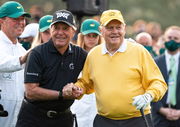
Tiger Woods’ Arch-Rival Fights Back After Being Accused of Snatching PGA Tour Spot from Deserving Pros

Team USA under scrutiny for lack of coherence
It is not uncommon for the US Ryder Cup golfers to find themselves on a sour note against each other. For example, in 2021, the Bryson DeChambeau vs. Brooks Koepka beef was making headlines and waves over the internet. What started as a series of derogatory digs culminated in a heated exchange of rolled eyes and media tension. While the duo made peace for the Ryder Cup, the bitter aftertaste of the drama likely impacted the event.
ADVERTISEMENT
Similarly, not long ago, Patrick Reed and Jordan Spieth found themselves in a similar situation. The latter had refused to be paired with Reed, leading to a series of negative exchanges. These events clearly reflect cracks not just within management but also among team members themselves.
Doubtless, it has drawn the attention of European golfers. “I think America has tried too hard to become a team, whereas Europe is a bit more natural and organic… it comes from deeper roots in a way… I think the Americans have gotten a little bit… they think being a great team is about being best mates,” Justin Rose criticized Team USA.
Rose believes the Americans fail to qualify as a team due to a lack of team chemistry and coherence. Instead, he lays out what truly makes a roster into a team. “I really don’t think that’s what being a great team is. Being a great team is having a kind of real good theme and having an identity that has come from players before you, and you all buy into that vision,” Rose shared.
ADVERTISEMENT
The Ryder Cup defeat was more about the systemic failures that the PGA of America failed to address. With the usual distance from the golfers, they can’t bridge the gaps. Hence, as Billy Horschel believes, it’s better for the PGA Tour to assume responsibility for the US Team if it intends to flip the script.
ADVERTISEMENT
ADVERTISEMENT
ADVERTISEMENT
